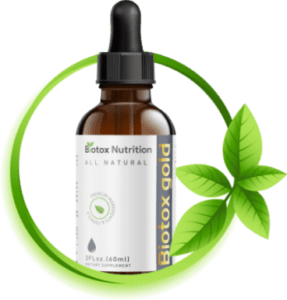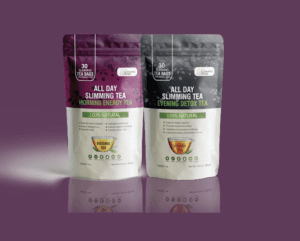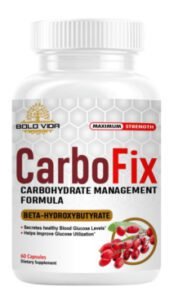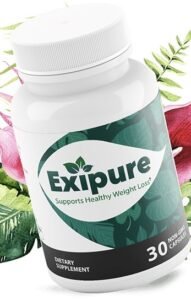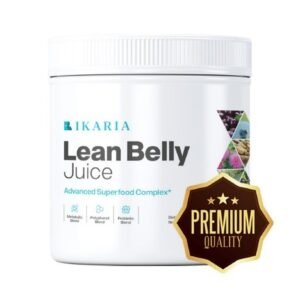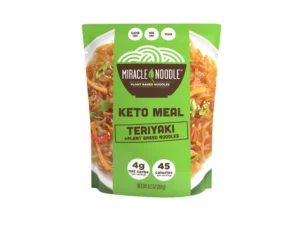Is Diet or Exercise More Important?
Longevity has always been a topic of interest, with people constantly seeking the secret to a longer, healthier life. With a myriad of factors contributing to our overall health, it’s no surprise that the roles of diet and exercise are often at the forefront of discussion. So, is diet or exercise more important for a healthier, happier life? In this article, we will take a deep dive into this question, examining the impacts of diet and exercise on longevity and overall well-being.
As we delve into this topic, it’s important to remember that every individual is unique, and what works for one person may not necessarily work for another. Therefore, it is crucial to consider a personalized approach when evaluating the benefits of diet and exercise in the quest for a longer, healthier life.
Debunking the BMI myth
Is Diet or Exercise More Important for a Healthier
Before we explore the roles of diet and exercise in longevity, it’s important to debunk the BMI (Body Mass Index) myth. BMI has long been used as an indicator of overall health, but recent studies have shown that it may not be the most accurate measure.
The BMI is calculated by dividing a person’s weight (in kilograms) by their height (in meters squared). While this formula may seem straightforward, it fails to account for factors such as muscle mass and fat distribution, which can significantly impact overall health. For example, individuals with a high muscle mass may have a high BMI, but this does not necessarily mean they are unhealthy or at risk for weight-related health issues.
In short, while BMI can provide a general idea of a person’s health, it should not be the sole determinant of one’s well-being. Instead, it’s essential to consider other factors such as diet, exercise, and overall lifestyle when evaluating one’s health and longevity.
Is diet or exercise more important for a healthier, happier life?
The age-old debate of what’s more important, diet or exercise, has been a source of contention for years. Some argue that a healthy diet is the key to longevity, while others believe that regular exercise is the most crucial factor. So, which holds more weight (pun intended)?
Research has shown that both diet and exercise play vital roles in our overall health and well-being. However, when it comes to weight management, studies suggest that diet may have a more significant impact. This is because it is generally easier to consume fewer calories than it is to burn them off through exercise. For example, it takes approximately 30 minutes of brisk walking to burn off the calories in a single chocolate chip cookie. This highlights the importance of a balanced diet in maintaining a healthy weight and achieving optimal longevity.
That being said, exercise is by no means less important. Engaging in regular physical activity has been linked to numerous health benefits, including improved cardiovascular health, increased muscle mass, and better mental well-being. It is essential to strike a balance between diet and exercise to achieve overall health and longevity.
The benefits of exercise without dieting
Is Diet or Exercise More Important for a Healthier
While diet may play a more significant role in weight management, the benefits of exercise without dieting should not be underestimated. Exercise offers a plethora of health advantages that go beyond weight loss, including:
- Improved cardiovascular health: Regular physical activity has been shown to reduce the risk of heart disease, stroke, and high blood pressure.
- Increased muscle mass: As we age, we naturally lose muscle mass, which can lead to a decrease in strength and mobility. Exercise can help maintain and even increase muscle mass, promoting better overall functioning.
- Enhanced mental well-being: Exercise has been linked to improved mood, reduced stress levels, and increased cognitive function.
These benefits, among others, highlight the importance of incorporating exercise into our daily routines, regardless of whether or not we are following a strict diet plan.
Great Northern Beans: Packed with protein, iron, folate, and copper.
Rosemary: One of nature’s virus antidotes.
San Marzano TomatoesLycopene helps protect cells from damage
- Carrot: Keeps vision as sharp as a tack.
- Lentils: Regulate blood sugars and boost digestion.
- Curry: An immunity superhero
Life expectancy by BMI and weight-related health statistics
Is Diet or Exercise More Important for a Healthier
While BMI may not be the perfect measure of health, there is still a correlation between BMI and life expectancy. Studies show that individuals with a BMI of 18.5-24.9 (considered “normal” weight) tend to have the longest life expectancy. Those with a BMI of 25-29.9 (considered “overweight”) have a slightly shorter life expectancy, while individuals with a BMI of 30 or higher (classified as “obese”) face the greatest risk of weight-related health issues and reduced life expectancy.
Weight-related health statistics further emphasize the importance of maintaining a healthy weight for optimal longevity. Obesity has been linked to numerous health problems, including heart disease, type 2 diabetes, and certain cancers. These health issues can significantly impact one’s quality of life and overall life expectancy.
The impact of obesity on life expectancy
Is Diet or Exercise More Important for a Healthier
Obesity is a growing concern worldwide, with the World Health Organization (WHO) estimating that over 650 million adults are obese. Obese life expectancy is often shorter than that of individuals with a healthy weight, as obesity increases the risk of various health complications.
An average age of death for an obese person is estimated to be 8-10 years shorter than that of a person with a healthy weight. This reduction in life expectancy is primarily due to the myriad of health issues associated with obesity, such as heart disease, diabetes, and certain cancers. Furthermore, obesity can also impact one’s quality of life, making it more difficult to engage in physical activities and enjoy day-to-day activities.
Strawberry: Loaded with antioxidants and Vitamin C.
- Chocolate: Improves cognition & boosts your mood.
- Pea Protein: Packed with protein to aid in restoring muscle.
- Tocos: Decreases cell damage and supports healthy skin
- Sea Buckthorn Berry: Boosts the production of collagen
- Passion Fruit: Packed with vitamin A to support healthy skin
The health benefits of losing weight and its potential effects on height
Is Diet or Exercise More Important for a Healthier
Losing weight offers numerous health benefits, particularly for those who are overweight or obese. Some of the most notable benefits of weight loss include:
- Improved cardiovascular health: Weight loss can help reduce the risk of heart disease and high blood pressure.
- Reduced risk of diabetes: Losing weight can help lower the risk of developing type 2 diabetes.
- Decreased risk of certain cancers: Weight loss is associated with a lower risk of obesity-related cancers, such as breast, colon, and kidney cancers.
In addition to these health benefits, some individuals may also experience an increase in height after losing a significant amount of weight. This is because excessive weight can compress the spine, leading to a slight decrease in height. While this effect may not be significant for everyone, it is yet another potential benefit of losing weight and maintaining a healthy lifestyle.
How to lose weight in a healthy, sustainable way
Is Diet or Exercise More Important for a Healthier
Achieving and maintaining a healthy weight is essential for optimal longevity and overall well-being. However, it’s important to approach weight loss in a healthy, sustainable way to avoid potential health risks and ensure long-lasting results. Here are some tips for losing weight in a healthy manner:
- Focus on a balanced diet: Eat a variety of nutrient-dense foods, including fruits, vegetables, lean proteins, and whole grains. Avoid fad diets and extreme calorie restrictions.
- Incorporate regular exercise: Aim for at least 150 minutes of moderate-intensity aerobic activity or 75 minutes of vigorous-intensity aerobic activity per week, along with muscle-strengthening activities on two or more days per week.
- Set realistic goals: Aim for a gradual, steady weight loss of 1-2 pounds per week. This is more sustainable and healthier than attempting to lose large amounts of weight in a short period.
- Practice mindful eating: Pay attention to your body’s hunger and fullness cues, and avoid emotional eating.
- Seek support: Enlist the help of friends, family, or a professional (such as a registered dietitian or personal trainer) to keep you accountable and provide guidance.
- Find a perfect weight loss supplement.
Remember that achieving a healthy weight is a journey, and it’s essential to be patient and persistent in your efforts.
Weight and health: understanding the connection
Is Diet or Exercise More Important for a Healthier
While it’s evident that there is a connection between weight and health, it’s important to remember that weight is just one piece of the puzzle. Factors such as genetics, lifestyle habits, and underlying medical conditions can also significantly impact one’s overall health and well-being.
Therefore, it’s essential to take a holistic approach when evaluating one’s health and longevity. This means considering not just weight, but also factors such as diet, exercise, sleep, and stress management. By focusing on overall wellness, we can unlock the secrets to a healthier, happier life.
Exercise vs diet: finding the balance for optimal longevity
Is Diet or Exercise More Important for a Healthier
As we’ve explored throughout this article, both diet and exercise play crucial roles in achieving optimal longevity and overall well-being. While diet may have a more significant impact on weight management, exercise offers a wide range of health benefits that extend beyond weight loss.
The key to a healthier, happier life lies in finding the right balance between diet and exercise. This means focusing on a nutrient-dense, balanced diet while also incorporating regular physical activity into one’s daily routine. By striking this balance, we can improve our overall health, reduce the risk of chronic diseases, and ultimately, unlock the secrets to a longer, more fulfilling life.
Introducing Miracle Noodle Teriyaki Keto Meal. A delicious meal made with a sweet and savory homemade teriyaki sauce combined with our low-calorie/low-carb noodles.
Miracle Noodle® is made from 97% water and 3% plant fiber and is naturally low in calories. This natural fiber makes you feel full while still enjoying the satisfaction of eating noodles!
Conclusion
Is Diet or Exercise More Important for a Healthier
In conclusion, the answer to the question, “Is diet or exercise more important?” is not a simple one. Both diet and exercise play vital roles in our overall health, longevity, and happiness. While diet may be more critical for weight management, exercise offers numerous health benefits that contribute to a healthier, happier life. Ultimately, the key to unlocking longevity lies in finding the right balance between diet and exercise, along with other factors such as sleep, stress management, and overall wellness.
It’s essential to remember that there is no one-size-fits-all approach to achieving optimal health. What works for one person may not necessarily work for another. Therefore, it’s crucial to listen to your body, understand your unique needs, and approach diet and exercise in a personalized, sustainable way.
By taking a holistic approach to wellness, we can improve our overall health and well-being, reduce the risk of chronic diseases, and unlock the secrets to a longer, happier life. So, let’s focus on a balanced diet, regular physical activity, and overall wellness to achieve optimal longevity and live life to the fullest.
Affiliate Disclosure:
The links contained in this product review may result in a small commission. This goes towards supporting our research and editorial team and please know we only recommend high-quality products.
Note: This article is for informational purposes only and is not intended to diagnose, treat, or cure any disease. Always consult a healthcare professional before taking any supplement or making any changes to your diet or lifestyle.





